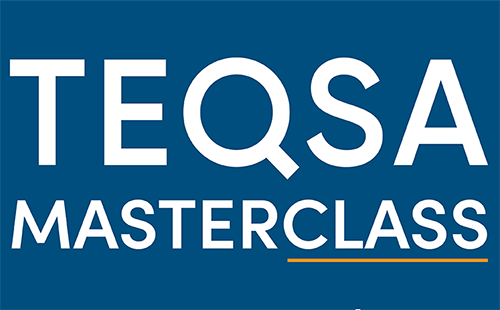Dưới đây là một số câu hỏi phổ biến về tính chính trực trong học tập. Các câu trả lời cung cấp thông tin chung, và TEQSA khuyến khích sinh viên nói chuyện với cơ sở giáo dục của họ để biết thêm thông tin liên quan đến họ và hoàn cảnh của họ.
Tôi có bị bắt không nếu tôi gian lận?
Bất chấp những gì bạn có thể đã nghe, nghiên cứu và kinh nghiệm cho thấy các nhà cung cấp giáo dục đại học của Úc đang tóm những sinh viên đạo văn và gian lận, bao gồm cả việc sử dụng các dịch vụ gian lận thương mại bất hợp pháp. Công nghệ mới, những thay đổi trong thiết kế đánh giá và các học giả được đào tạo để tích cực tìm kiếm các bài luận, dự án hoặc bài kiểm tra đáng ngờ có nghĩa là bạn có nhiều khả năng bị bắt hơn bao giờ hết.
Tôi đang gặp khó khăn với bài đánh giá của mình. Tôi có thể tìm trợ giúp bằng cách nào?
Nếu bạn gặp khó khăn trong việc học của mình, bạn nên nói chuyện với điều phối viên của đơn vị học tập hoặc giảng viên càng sớm càng tốt. Bạn có thể thảo luận về một giải pháp có thể hỗ trợ bạn hoàn thành việc học của mình tốt hơn. Bạn cũng nên nói chuyện với nhà trường về bất kỳ hỗ trợ kỹ năng học tập nào mà họ cung cấp, chẳng hạn như lời khuyên về việc tham khảo tài liệu, viết luận văn và nghiên cứu. Việc thực hiện các bước này cho thấy rằng bạn coi trọng tính chính trực trong học tập của mình và của trường học hoặc trường đại học của bạn.
Tôi muốn đọc một số ghi chú học tập mà tôi tìm thấy trên một trang mạng. Trước khi tôi có thể truy cập các ghi chú này, trang mạng yêu cầu tôi phải tải lên một bài tập cũ. Tôi có vi phạm tính chính trực trong học tập khi tải bài làm cũ của mình lên chưa?
Có, bạn có thể đã vi phạm tính chính trực trong học tập của mình khi chia sẻ bài làm của bạn. Các dịch vụ gian lận bất hợp pháp thường yêu cầu sinh viên tải bài làm của mình lên để được truy cập vào các ghi chú, bài tiểu luận hoặc phần ‘hỗ trợ học tập’ và sau đó bán nó cho các sinh viên khác để kiếm lời. Nếu nhà trường phát hiện ra, bạn có thể phải đối mặt với hình phạt vì tham gia việc gian lận hợp đồng. Bạn nên bảo vệ công việc của mình và đừng bao giờ chia sẻ nó với bất kỳ ai khác hoặc tải nó lên các trang mạng của bên thứ ba.
Có ổn không nếu tôi chia sẻ một bài làm đã được chấm điểm với bạn của mình?
Không, việc chia sẻ bài làm của mình với một người bạn có thể được coi là một hình thức cấu kết, vi phạm tính chính trực trong học tập của bạn. Cũng có nguy cơ là bạn của bạn có thể chia sẻ bài làm của bạn với các sinh viên khác hoặc thậm chí tải nó lên một dịch vụ gian lận bất hợp pháp. Bạn nên bảo vệ bài làm của mình và không bao giờ chia sẻ nó với bất kỳ ai khác hoặc tải nó lên các trang mạng của bên thứ ba.
Một thành viên trong gia đình hoặc bạn bè đã đề nghị giúp tôi làm bài luận. Điều này có ổn không?
Mặc dù một thành viên trong gia đình hoặc bạn bè sẵn sàng giúp đỡ bạn là điều rất tốt, nhưng bạn cần phải cẩn thận. Kiểm tra nhanh ngữ pháp và chính tả là tốt, nhưng nếu thành viên gia đình hoặc bạn bè của bạn đóng góp hoặc thay đổi nội dung bài làm của bạn, điều này có thể cấu thành việc vi phạm tính chính trực trong học tập.
Cần lưu ý, theo luật của Úc, bất kỳ ai cung cấp các dịch vụ gian lận bất hợp pháp (chẳng hạn như viết luận văn hoặc mạo danh trong một kỳ thi) nhưng không nhận được tiền vẫn có thể bị phạt nặng.
Nhà trường cáo buộc rằng tôi đã có hành vi sai trái trong học tập. Tôi nên làm gì?
Nếu bạn bị cáo buộc đã vi phạm tính chính trực trong học tập, bạn nên xử lý vấn đề này một cách nghiêm túc. Cơ sở giáo dục của bạn phải có các chính sách và thủ tục rõ ràng liên quan đến kỷ luật, khiếu nại và kháng cáo của sinh viên. Bạn nên đọc các chính sách này và tùy thuộc vào cơ sở giáo dục của bạn, bạn cũng có thể tìm kiếm các dịch vụ bênh vực và hỗ trợ do hiệp hội sinh viên cung cấp.
Tôi biết những người trong khóa học của tôi đang gian lận. Tôi nên báo cáo sự quan ngại này cho ai?
Nếu bạn có bằng chứng những người trong khóa học của bạn đang gian lận, bạn nên thông báo cho trường học hoặc trường đại học của bạn. Tùy thuộc vào từng trường hợp, bạn có thể muốn nêu sự quan ngại của mình trước với điều phối viên của đơn vị học tập hoặc giảng viên, hoặc bạn có thể muốn khiếu nại qua các kênh chính thức hơn. Hệ thống quản lý học tập (LMS), sổ tay sinh viên hoặc trang mạng của cơ sở giáo dục là nơi tốt để bạn tìm kiếm thông tin.
Việc gian lận có thể ảnh hưởng đến sự nghiệp tương lai của tôi không?
Có, bất kỳ hình thức gian lận nào cũng có thể có tác động lớn và tiêu cực đến sự nghiệp tương lai của bạn. Nhiều sinh viên đang theo học để tìm hiểu thông tin và kỹ năng cần thiết để đạt được mục tiêu nghề nghiệp của họ. Ngay cả khi bạn không bị bắt, bằng cách không tự mình làm bài làm được yêu cầu, bạn có thể không đạt được các tiêu chuẩn mà nhà tuyển dụng tương lai mong đợi. Và nếu bạn bị phát hiện gian lận, bạn có thể bị cơ quan chuyên môn từ chối cho đăng ký. Bạn cũng có nguy cơ bị tống tiền qua việc dịch vụ gian lận bất hợp pháp đe dọa sẽ tiết lộ hành vi gian lận của bạn cho nơi làm việc của bạn trừ khi bạn trả thêm tiền cho họ.
Tôi đã trả tiền cho người khác để làm bài làm của tôi và bây giờ họ đang yêu cầu tôi trả thêm tiền cho họ nếu không họ sẽ báo cho cơ sở giáo dục của tôi. Vậy tôi nên làm gì?
Đe dọa một người với hậu quả tiêu cực trừ khi người đó trả tiền được gọi là tống tiền. Tống tiền là bất hợp pháp, nhưng thật không may, một số sinh viên thấy mình bị tống tiền bởi các dịch vụ gian lận bất hợp pháp và thậm chí cả bạn bè, đồng nghiệp hoặc thành viên gia đình sau khi tham gia gian lận. Trả một lần để đáp ứng các yêu cầu thường không phải là kết thúc, họ có thể yêu cầu nhiều hơn và nhiều hơn nữa. Đây có thể là một tình huống rất căng thẳng đối với sinh viên, ngoài yêu cầu của kẻ tống tiền, họ còn lo lắng về hậu quả nếu cơ sở giáo dục hoặc nơi làm việc của họ phát hiện ra.
Nếu bạn đang bị tống tiền, bạn nên tìm lời khuyên về tình huống của mình. Một số cơ sở giáo dục có các dịch vụ pháp lý hoặc bênh vực cho sinh viên độc lập, nơi bạn có thể nhận được lời khuyên bảo mật. Các Trung tâm Pháp lý Cộng đồng cũng có thể cung cấp cho bạn lời khuyên. Bạn nên giữ một bản sao của tất cả các tin nhắn bạn đã nhận được để có thể làm bằng chứng về những gì đã xảy ra.
Bạn có thể quyết định tự báo cáo hành vi gian lận của mình cho cơ sở học tập của bạn. Một lợi thế lớn của việc tự báo cáo là người đe dọa sẽ báo cáo bạn sẽ mất quyền lực của họ đối với bạn. Một lợi thế khác là có thể học hỏi từ sai lầm và hoàn thành bằng cấp của bạn khi biết bạn đã hành động một cách chính trực. Tuy nhiên, bạn nên mong đợi cơ sở giáo dục của bạn xử lý vấn đề theo các chính sách và thủ tục của họ, có nghĩa là bạn có thể phải đối mặt với hình phạt học tập hoặc cao hơn, tùy thuộc vào bản chất của hành vi gian lận.
Phỏng theo thông tin của Hiệp hội Sinh viên Đại học Deakin






